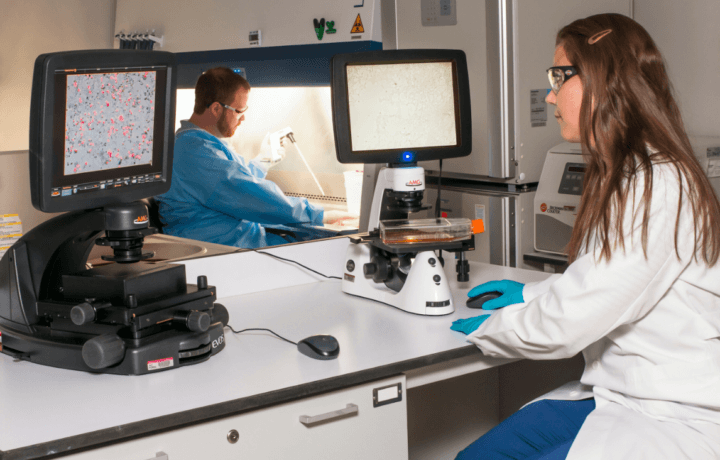As the fight against COVID-19 continues, genetic research has been given priority. This is for good reason. Our understanding of what makes the virus so dangerous, and in turn, how we can counter its spread, is based on our understanding of its genetic code. Tracking its mutations and their effects on spread and deadliness help provide a long-term picture of the new disease. As it relates to the disease, human genetics are of equal importance. However, where this information is gathered and stored poses legitimate privacy and security risks.
When it comes to containing the virus and tracking its spread, testing is of the utmost importance. When these tests are conducted, genetic information is taken. Scientists can derive an incredibly accurate picture of the genetic code using gene sequencing techniques developed in the last twenty years, both for the test subject and the pathogen.
Who Controls the Data?
In the age of big data, storing this information is a necessary tool for an accurate study of genetic changes. The concern arises when one takes a look into where this test data is going. Many U.S. officials are worried about one company in particular: BGI, which is a Chinese gene sequencing and biomedical firm. Their tests are FDA-approved and have been distributed to over 80 countries worldwide.
While BGI has certainly played a positive role in tracking the spread of the virus, its location in China has some worried over the privacy of its genetic data. According to William Evanina, the director of the National Counterintelligence and Security Center, China “has a well-documented history of acquiring and exploiting vast troves of personally identifiable information, including health-related data, on individuals across the globe through illegal, quasi-legal and legal means.” Officials’ concerns aren’t just speculation: Chinese laws mandate private companies’ cooperation with national intelligence.
Worldwide Data at China’s Fingertips
It’s no secret that genetics plays a significant role in forensics. With little to no restrictions in governments like China’s, it can even be used in surveillance. The Chinese government already has large networks of citizens’ data, from facial to voice recognition. BGI has announced the opening of a gene bank in Xinjiang, a region that may already be using genetic surveillance to target ethnic minorities. Coronavirus testing gives BGI troves of data worldwide.
This isn’t just of American concern; Israel’s largest health maintenance organization, Clalit, has declined to work with BGI, citing its information database as reason for denying their tests. Genetic information is inherently private, but its usefulness in tracking understanding, and targeting groups of people has not gone unnoticed by many governments. In 2015, Kuwait passed a law mandating DNA profiling of its entire population. Even many American gene sequencing companies have found themselves on the hot seat defending their use of genetic data.
There is good reason to be wary of a company like BGI, especially considering it runs China’s national gene bank. As if the coronavirus wasn’t enough cause for concern, its testing data could have grim implications for human rights across the globe. Not only do we need to be concerned about our Zoom calls data heading to China, but we also need to be concerned about who is interested in our medical information.




